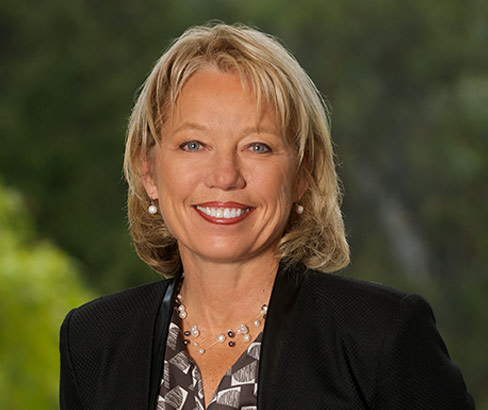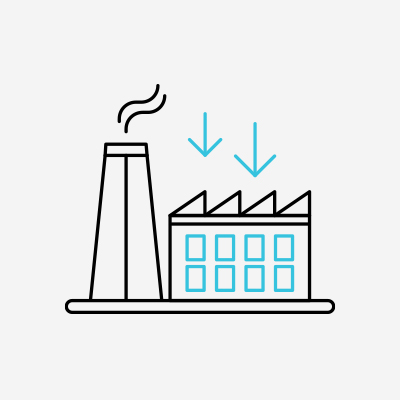 Written by Catherine Reheis-Boyd, WSPA President
Written by Catherine Reheis-Boyd, WSPA President
In the business world, like in many aspects of life, innovation is critical to meeting the opportunities and challenges of tomorrow. Innovation helps companies grow, evolve and stay relevant, as well as provide necessary solutions for the future. No matter the outcome, at the core of innovation is creative thinking, and over time creative thinking leads to a culture where innovation is not only embraced, but necessary.
For the oil and gas industry, innovation is part of our DNA — starting with Business Model Innovation and the conscious decisions we make every day to change for the better and what we do to keep our businesses running; to Process Innovation and the continuous improvement for how we produce and deliver safe, reliable energy; and, to Social Innovation and new social practices that bring about positive change in the communities where we live and work. Our industry employs some of the brightest and most cutting-edge researchers, engineers, scientists and passionate problem-solvers that bring creative thinking to life every day, enabling climate solutions that are reducing carbon emissions and safeguarding our environment in ever-impressive ways.
Sunday, June 21 marked International Climate Change Day, a time to recognize the bold commitments to sustainable innovation across the industry. Here are a few examples of WSPA member companies transforming how they operate to produce and deliver safe, reliable energy in ways that better satisfy the needs of consumers while protecting the planet. We’re proud to continue a culture of innovation to meet the needs of tomorrow’s sustainable energy future, together.
Business Model Innovation:
Transforming the way we do business to better satisfy the needs of consumers while protecting the planet.
- Aera Energy is committed to reducing its carbon footprint with a company-wide mission
that puts safety and environmental performance first. Its rigorous testing and environmental actions have enabled Aera’s air emissions to drop by more than half since 2000. - For some companies, like Chevron, climate goals to reduce GHG emissions intensity through its flaring and methane metrics are tied directly to employee and executive compensation so all have a stake in the game.
- With more than 20,000 scientists and engineers, including more than 2,200 with PhDs, ExxonMobil collaborates with approximately 80 universities, civil society groups and other industry partners around the world to explore new energy technologies to reduce emissions. Recently, the company entered into an agreement with the U.S. National Laboratories to commit up to $100 million to research lower emissions solutions. Over the past 10 years, the company has avoided 162 million metric tons of GHG emissions.
- The Phillips 66’s air research and development program at its state-of-the art Technology Center collaborates with government agencies, trade organizations and academic institutions to provide data that leads to effective rulemaking to improve air quality in the communities where it operates. Since 2012, air emissions from its refining business unit have decreased 25%.
- Plains All American Pipeline integrates safety into its business planning and decision-making processes. Across the organization, the company has more than 220 dedicated employees who focus exclusively on environmental, health and safety initiatives.

Process Innovation:
The continuous improvement for how we produce and deliver safe, reliable energy.
- Valero Energy is one of the largest ethanol producers in the nation, with 14 plants across eight states in the Midwest and annual production capacity of 1.73 billion gallons. The plants are also a major producer of distillers grains and other feed products.
- U.S. Oil & Refining Co. is constantly working to improve its efforts to protect the environment by proactively investing in technologies which reduce flaring and have resulted in a 25% reduction in greenhouse gas emissions.
- Shell is expanding its operations in wind power to make more renewable power available to customers. At the end of 2019, Shell’s share of total installed capacity combined from onshore and offshore wind was 290 MW, which is enough to power 230,840 homes for one year.
- PBF Energy invested over $550 million in turnaround, maintenance and other strategic capital expenditures to improve reliability and reduce environmental impacts in 2018. The company is edging closer to implementation of the International Maritime Organization’s regulations that will reduce allowable sulfur levels in fuels being used in the shipping industry.
- Marathon Petroleum Corporation is expanding its renewable fuels manufacturing and blending capabilities by converting its North Dakota refinery into a renewable diesel plant at a cost of $470 million, processing biocrude in California, and investing in bio-gasoline and bio-jet fuel R&D.
- California Resources Corporation is the largest natural gas producer in California, which imports more than 90 percent of the natural gas consumed in the state. Natural gas is a fuel that provides 30 percent of California’s electricity generation, a highly efficient direct source of energy for heating and cooking in California homes, restaurants, hospitals, and a key feedstock in industrial applications.
- Berry Corporation is committed to conducting its business operations in a manner that maintains, protects, and preserves our natural resources. As part of its commitment to responsible environmental stewardship, the company works to reduce greenhouse gas emissions from its operations by using co-generation power plants that reuse heat to produce both steam and electricity together.
What’s more, Social Innovation is driving new social practices and progress, not for the sake of prosperity, but progress for the people and the planet. These new solutions help overcome social and environmental challenges and support ongoing social progress. Like any good neighbor, the industry is striving to bring prosperity and social change through volunteer work and community building, charitable contributions and direct economic support, diversity inclusion and education, and environmental stewardship and ecosystem management. Here are a few of those examples:
Social Innovation
New social practices that drive progress for the people and the planet.
- In the past five years, Chevron has spent $154 billion globally on goods and services, helping grow economies, create jobs and develop workforces.
- Shell invests in community projects so that local people can benefit from social and economic development. In 2019, Shell spent $116 million on voluntary social investment.
- In order to create shared value with their stakeholders, Marathon works to act responsibly and make real, positive impacts in the communities where they operate. In 2018, Marathon donated more than $2.4 million to the United Way, an organization that shares their dedication to improving lives and strengthening communities where they live and work every day.
- Valero and the Valero Energy Foundation fund nonprofit agencies that serve predominantly disadvantaged children and families within four areas. In 2018, Valero provided direct monetary support of $8.9 million for education, $6.5 million for health care, $4.8 million for basic needs, and $2.7 million for civic needs.
- We have a strong belief that no one company or industry can combat climate change alone; these are shared challenges, and we are committed to doing our part.
We have a strong belief that no one company or industry can combat climate change alone; these are shared challenges, and we are committed to doing our part with industry partners and beyond. It is this collaboration that makes us better and helps us reveal the blind spots as we continue innovating to find solutions that positively impact our business and our global community. The collective impact of continuous innovation is creating opportunities to grow in new directions.
We look forward to seeing what else our industry can do to inspire real change for us all.
